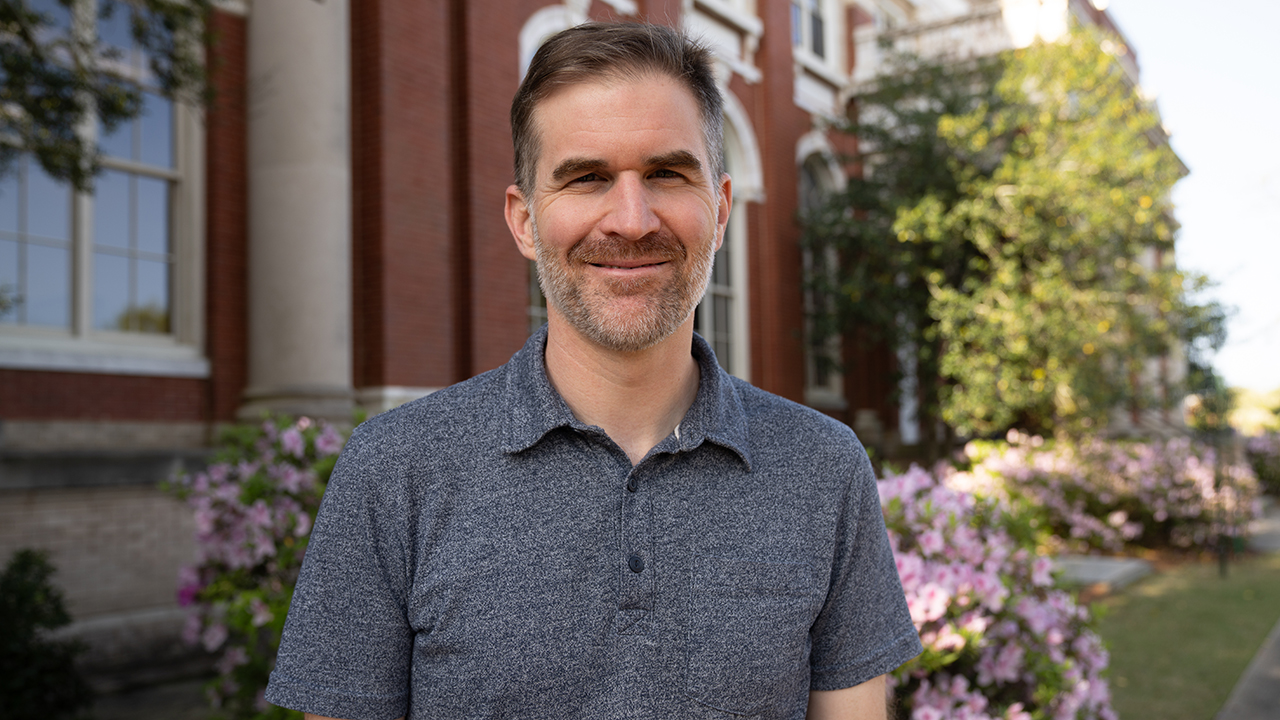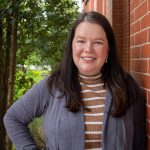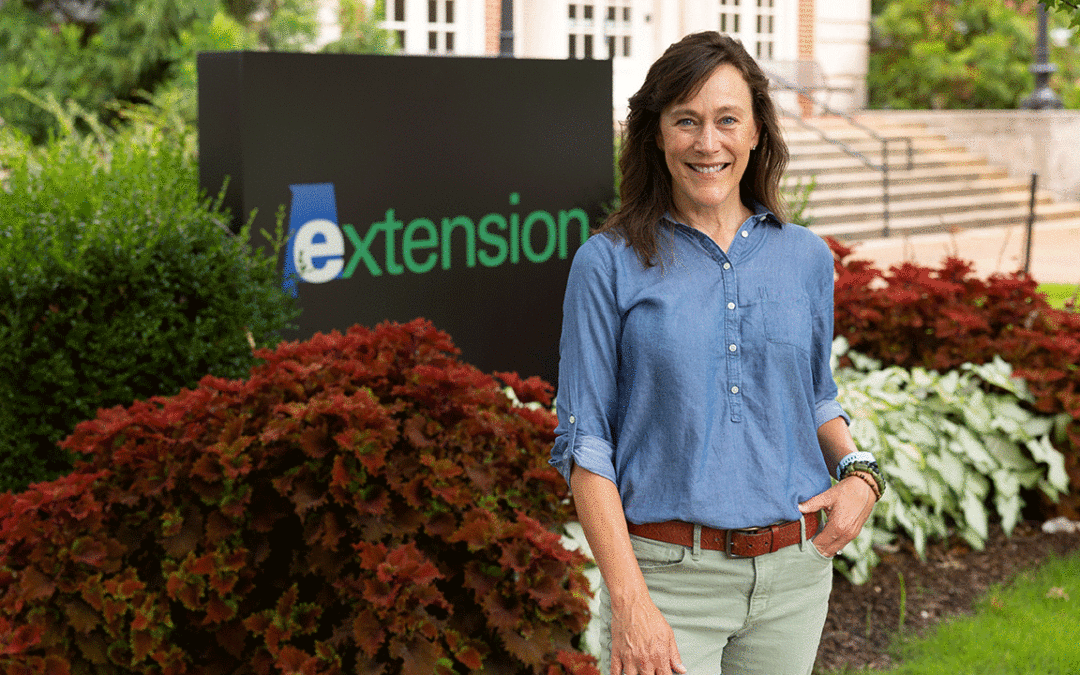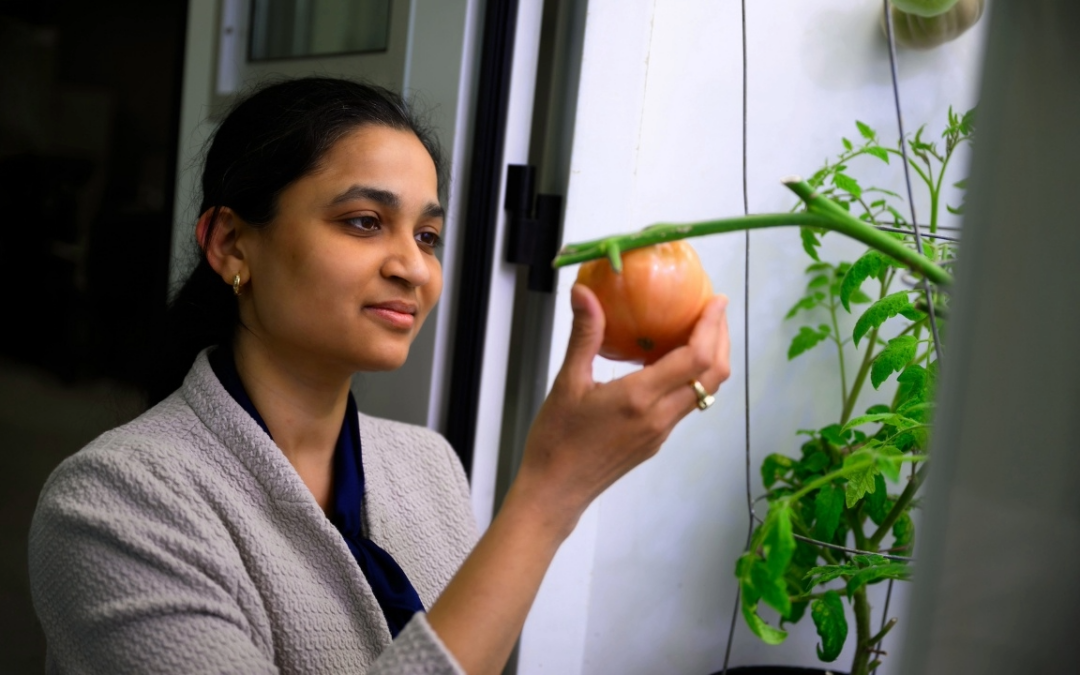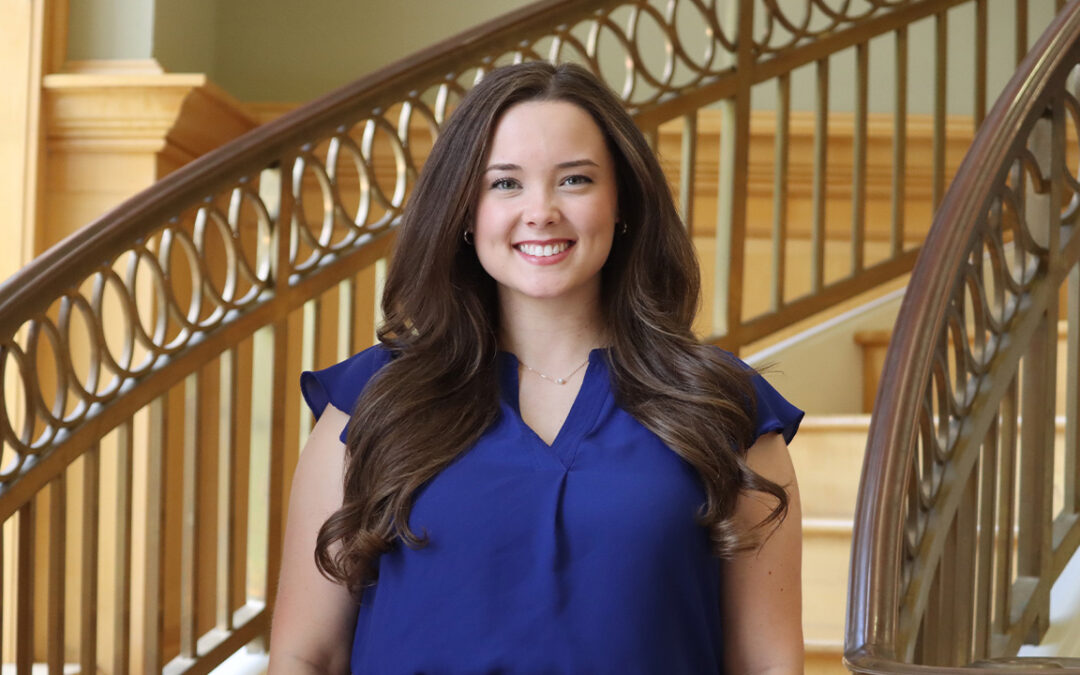Geoff Williams, associate professor, graduate program officer and longtime director of the AU-Bees Lab, is director of the new Auburn University Bee Center, effective Tuesday, April 1.
In February, the Board of Trustees approved the establishment of the Auburn University Bee Center, which combines research, extension and education to advance innovative solutions for bee management and conservation. The center will advance the university’s role as a leader in bee research, cultivate future leaders in the field through impactful student experiences, and increase collaborations among the colleges and the Alabama Cooperative Extension System.
“The vision for the Bee Center is very much aligned to the long-term aspiration of Auburn University — we want to be that inspirational leader in our own field of bee health by performing meaningful research and outreach alongside our collaborators, community members and industry leaders,” Williams said.
According to Williams, creation of the Bee Center recognizes the important contributions Auburn has made towards understanding and improving bee health and beekeeping, and positions it to move forward more effectively as a regional and national leader by streamlining faculty and resources dedicated to bees.
“I’m really thrilled about the new Auburn University Bee Center because it highlights the commitment the university places on supporting bees and other insect pollinators in Alabama and the broader southeast region,” he said. “As someone who has worked to promote the health of bees for nearly 20 years, this kind of collaborative backing — via the Alabama Agricultural Experiment Station, Alabama Extension and USDA ARS Stoneville Pollinator Health Unit — is unprecedented and inspiring to those of us working tirelessly to support insect pollinators in a way that benefits the environment and our food security.”
The core members of the Bee Center are faculty whose lab missions are dedicated to bees. This includes Assistant Extension Professor Selina Bruckner and Assistant Research Professor Anthony Abbate from the College of Agriculture. They are joined by Assistant Professor Stephanie Rogers from the College of Sciences & Mathematics and Dr. Laura Huber from the College of Veterinary Medicine, as well as Alabama Extension Agents Jack Rowe and Allyson Shabel, stationed at Auburn and Alabama A&M University, respectively.
Williams said his primary focus as director will be to champion the work of these amazing faculty and staff.
“I want to especially work with them to collaboratively and dynamically address critical bee health needs alongside our stakeholders and colleagues,” he said. “I’m particularly excited to lead the Southeast Bees immersive learning program, which will provide undergraduate students the opportunity to gain applied bee research and outreach experience at either a land-grant institution, such as Auburn University, or a federal research facility, such as USDA ARS Stoneville. This program — which will focus on important stressors of bees — will be the first of its kind in the country.”
The need for the creation of the center came about through conversations Williams had with Department Chair David Held and former College of Agriculture Dean Paul Patterson. The proposal for the board was to leverage funds from the Alabama Agricultural Experiment Station, Alabama Extension and the USDA Agricultural Research Service.
Held said Williams was the natural choice to direct the new center.
“Although we know Dr. Williams as our AU-Bees leader, Geoff is a leader in honey bee research worldwide,” Held said. “His students are recognized for their research and extension efforts, and some travel the world doing research on species that pose future threats to U.S. beekeepers.”
Williams started at Auburn as an assistant professor in 2016. He became an associate professor in 2022. Prior to joining the Auburn faculty, he was a senior research associate at the University of Bern in Switzerland. He is the vice president of the global COLOSS Honey Bee Research Association — the organization that establishes the standard protocols for honey bee research worldwide — and is also an apiculture subject editor for the Journal of Economic Entomology, one of the Entomological Society of America’s peer-reviewed scientific publications.

